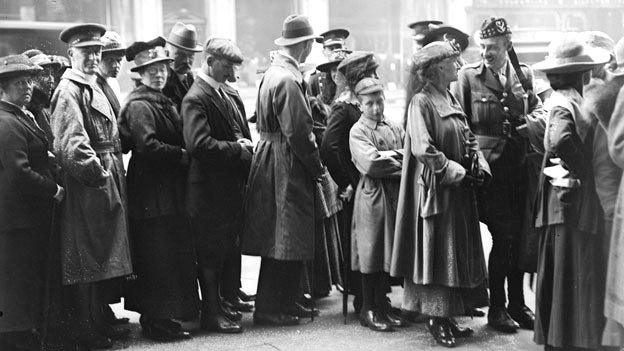Scotland's heroes: The 74 Victoria Cross winners from WW1
- Published
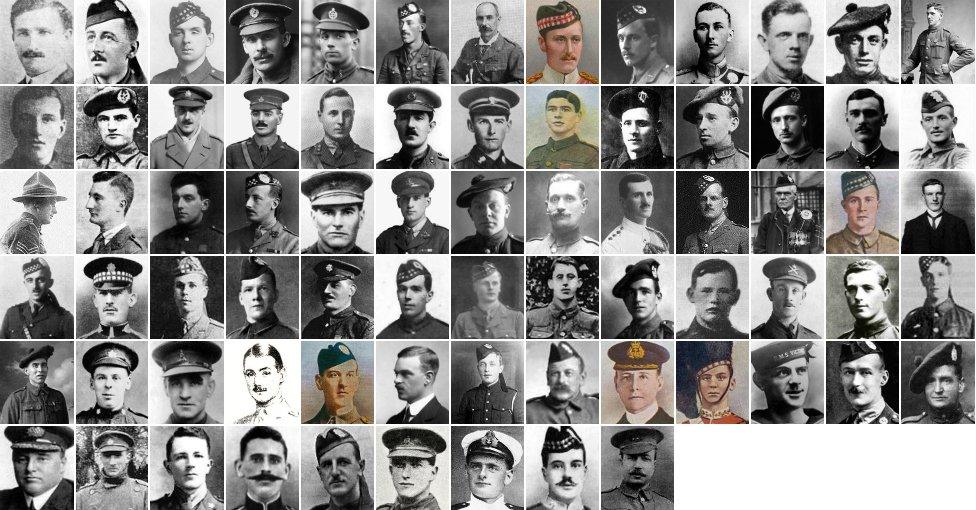
Images courtesy: Scotland's War, Royal Artillery Museum, Royal Scots Museum, IWM
During World War One, 627 people were awarded the Victoria Cross - the highest award for gallantry for any Commonwealth soldier. Amongst them were 74 Scots. As we pause this week to remember all of those who fought in the Great War and every conflict since, the stories of those VC winners and their heroics are as incredible as ever.
Robert McBeath, like so many other young men from across Britain, in the early years of WW1, was keen to sign up and do his bit.
The Kinlochbervie teenager lied about his age and joined The Seaforth Highlanders. In November, 1917 - a month before his 19th birthday - Lance Corporal McBeath charged a "nest" of German machine guns in Cambrai, armed with a Lewis Gun and revolver.
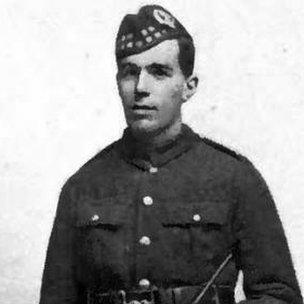
Robert McBeath lied about his age to join the army
With the help of a tank, he managed to put five of the deadly weapons out of action and captured 33 soldiers. His actions won him the Victoria Cross.
McBeath survived the war, and moved to Canada to start a new life as a police officer. In a tragic irony, a man who survived the bullets and shells of the trenches, was shot dead while making an arrest on the streets of Vancouver.
He was just 23.
McBeath is the youngest of 74 Scottish Victoria Cross winners from WW1. All of them will be remembered as part of the Scotland's War project, external, which highlights the stories of those who fought for their country a century ago.
Ahead of the release of a digital archive later this year, one of the initiative's researchers Alistair McEwen has uncovered the stories of the VC winners and shared his work with the BBC.
He said: "The research is a work in progress. Many of the men were from 'humble' backgrounds and I wondered how they coped with the fame their awards brought.
"It is also interesting to speculate what those who died might have gone on to achieve in their lifetime.
"We think that the stories are inspirational and we hope they may inspire the present generation."
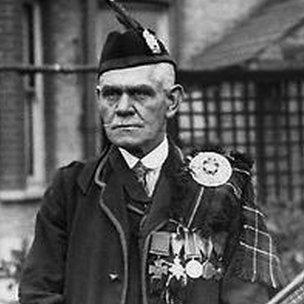
Daniel Laidlaw is one of Britain's most famous Victoria Cross winners
From a footballer to pipers, to men who were born in Scotland and then fought for their new countries of Canada and New Zealand, every one of Scotland's Victoria Cross winners demonstrated remarkable heroism.
One of the most famous VC winners featured in the Scotland's War archive is Daniel Laidlaw, who was known as the "Piper of Loos".
On 25 September 1915, soldiers of The King's Own Scottish Borderers were on the front line as the British used poison gas to attack the enemy. But the wind changed, and the gas came back into the trenches of the Scots.
Laidlaw's response is legendary. He climbed over the top and marched into No Man's Land, playing his pipes, stirring the troops into action.
His Victoria Cross citation states: "The effect of his splendid example was immediate and the company dashed to the assault. Piper Laidlaw continued playing his pipes even after he was wounded and until the position was won."
As you may expect, the majority of Scots who won the Victoria Cross in WW1 were young, with many in their 20s.
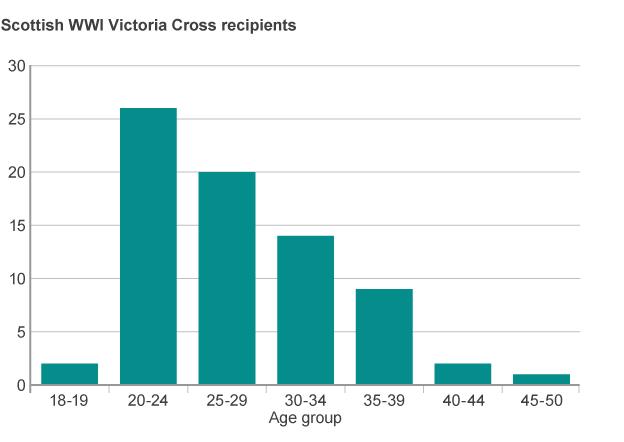
The oldest Scottish recipient from the conflict was John Ripley of The Black Watch. At the age of 47, the corporal led a platoon charge in the trenches at Rue du Bois and "continued to hold the position until all his men had fallen and he himself was badly wounded in the head".
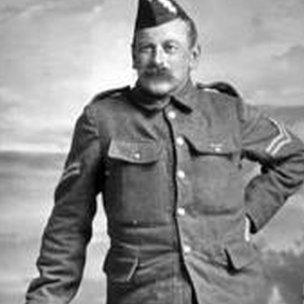
John Ripley, Scotland's oldest Victoria Cross winner in WW1
Ripley also won the long service medal for his service in the army. He died in 1933, after falling off a ladder in St Andrews.
It wasn't just the brave men in the trenches of France and Belgium who were recognised with Victoria Crosses. Seaman George Samson was awarded his for his actions at Gallipoli.
The Carnoustie man, under heavy fire, helped the wounded during the landings in Turkey. His citation adds: "He was hit over and over again, and when he returned to England, his body still contained a dozen pieces of shrapnel."
Samson survived the war and died of pneumonia in 1923 while serving with the Merchant Navy. On Remembrance Sunday, Bob Samson will lay a wreath in the Victoria Cross winner's memory at a ceremony in Carnoustie.

Scotland's War
690,000 Scots served during World War One
65% of those Scots volunteered between 1914-16, compared with 52% in the rest of the UK
Estimates of Scots who died range between 75,000 and 182,000
Source - Ewen Cameron, Professor of Scottish History at University of Edinburgh

George Samson was the cousin of Bob's father, who was also called George. Bob and his family did not know about his relative's heroics until ten years ago, when they discovered his story in a newspaper clipping.
The 88-year-old retired joiner said: "We are quite proud of it. He was a very brave man. There were 17 bullets in him. It is unimaginable. They were all very brave men.
"I also feel there was an awful lot more people out there that did things like that but were never seen.
"There couldn't have just been the handful that got VCs. Many more who also deserved the VC are never talked about."
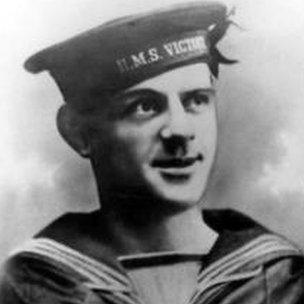
George Samson was shot several times during the Gallipoli landings
Ewen Cameron, Professor of Scottish History at Edinburgh University, added: "The VC has retained its prestige. There were VCs in Iraq and Afghanistan.
"I find our general perception of WW1 to be quite interesting. We tend to use words like waste and sacrifice. We tend to see WW1 as a pointless exercise in mass slaughter.
"Our image of the war is seen through the lens of World War Two. While we can see the moral clarity of the fight against Nazism, it is more difficult to appreciate the moral clarity people had at the beginning of WW1. People were genuinely shocked at German aggression."
One hundred years ago, ordinary men such as Robert McBeath, Daniel Laidlaw, John Ripley and George Samson defended Britain against that aggression with extraordinary acts of bravery.
As commemorations of WW1 continue over the next four years, they - like thousands and thousands of others - will be remembered.
•The Scotland's War project is working with the people of Scotland and the Scottish diaspora community to build a social and military history of Scotland throughout the period of the Great War. Members of the initiative want to hear the stories of your family from WW1. You can contact them by email, external.
- Published22 October 2014
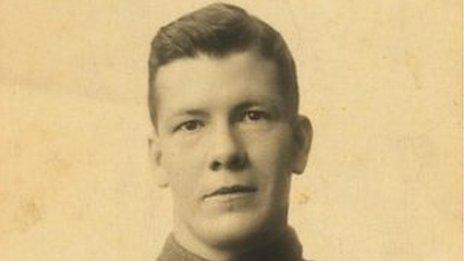
- Published6 August 2014
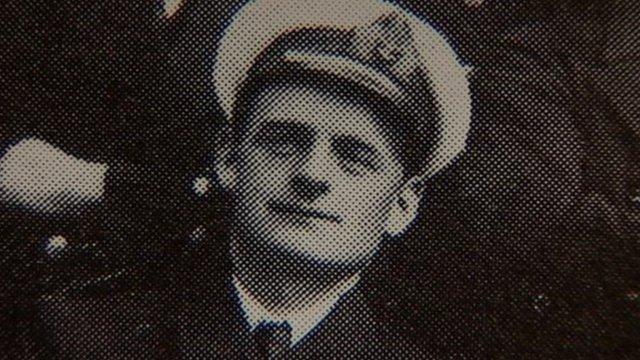
- Published7 November 2014
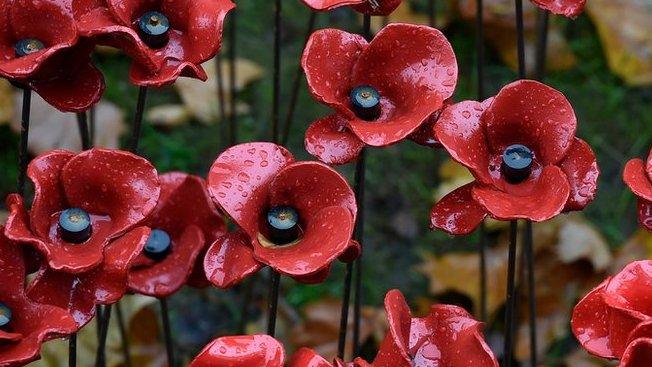
- Published7 November 2014
